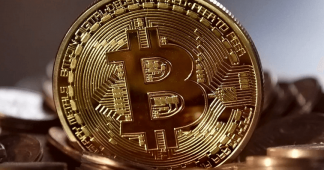Salvadorans Protest Against Legalization of Bitcoin
Sep 7, 2021
On Tuesday, Salvadorans took to the streets to protest against the adoption of Bitcoin as a legal tender in their country, arguing that the volatility of this cryptocurrency will affect their incomes.
“When buying Bitcoins, we run the risk of becoming rich and the next day being poor,” protesters highlighted, adding that this cryptocurrency also facilitates the laundering of money obtained from criminal activities by not recording the identity of those who handle it.
President Nayib Bukele promoted the approval of the Bitcoin law, which obliges to accept this currency as a form of payment so that Salvadorans living abroad would not have to pay commissions for remittances, which accounted for almost a quarter of this Latin American country’s 2020 gross domestic product.
Carlos Carcah, a professor at El Salvador’s Superior School of Economics, explained that the use of Bitcoin would not affect the Salvadorans’ purchasing power as long as payments with it are accepted in the same way as payments with dollars.
on the same day as bitcoin rolls out, the El Salvador judiciary protests. A third of the country's judges are being forcibly retired. the president says it's to clean house. critics say it's part of a power grab – taking hold of the country's institutions.#Bitcoin #BitcoinDay pic.twitter.com/HApxh4GRbO
— John Holman (@johnholman100) September 7, 2021
However, citizens fear that this cryptocurrency will be accepted as the unique form of payment soon given that the Law on Monetary Integration quickly replaced the Salvadoran colon for the U.S. dollar in 2001.
In August, Moody’s and Fitch Ratings downgraded El Salvador’s sovereign debt. Both rating agencies cited the bitcoin law’s steep downside risks and hasty implementation.
Despite this, the Bukele administration pledged to provide US$30 to each citizen in digital tokens through a state-provided digital wallet and begun to install Bitcoin ATMs through which Salvadorans will be able to convert their digital tokens into cash, an initiative backed by a US$150 million government fund.
“I don’t think Bukele has fully understood the implications of the Bitcoin law, its potential to cause serious macroeconomic problems and convert the country into a haven for money laundering,” Salvadorean economist Ricardo Castañeda told The Guardian.
Published at www.telesurenglish.net
We remind our readers that publication of articles on our site does not mean that we agree with what is written. Our policy is to publish anything which we consider of interest, so as to assist our readers in forming their opinions. Sometimes we even publish articles with which we totally disagree, since we believe it is important for our readers to be informed on as wide a spectrum of views as possible.











